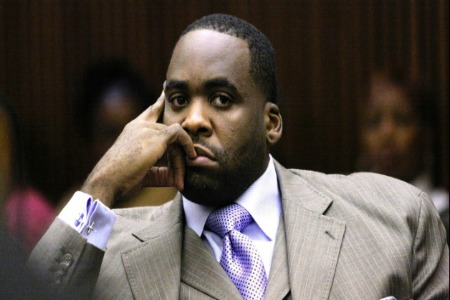
How does racially charged language make you feel?
You’ve heard of affirmative action, right?
Will your religious beliefs hinder your ability to make the distinction between immoral and illegal activities?
These are the questions Judge Nancy Edmunds, the prosecution, and defense attorneys have asked prospective jurors over and over again during the past week of jury selection in the alleged corruption trial involving former Detroit mayor Kwame Kilpatrick and three of his associates.
Why are these queries important to the jury selection process? In order to conduct a fair trial in the city hall corruption case, the jury has to understand that there’s a difference between cronyism and affirmative action, that minority businesses are often favored due to affirmative action and government set-aside programs and not necessarily because public officials are running a racket.
But most importantly, prospective jurors –who have thus far been predominantly white or of non-African descent—must be prepared for fiery language on race relations. Jurors have to promise now that they won’t take any racial insults heard in the trial out on the defendants later.
“There’s going to be angry, racially charged language in this case that could be difficult to listen to. Will this affect your ability to judge fairly?” Edmunds asked one prospective juror after the next as the juror hunt continued on Friday morning.
The prospective jurors answered “no”, that racially charged comments wouldn’t blur their judgment, that they’d heard them before.
“Based on the historical events, do you understand why black people might make angry comments about white people?” John Shea, defense attorney for Bernard Kilpatrick asked a white male from the jury pool.
“Yes” was the common answer to the heavily repeated question.
Another topic that surfaced frequently was religion and how it related to moral and ethical ideas. Defendant Kwame Kilpatrick’s top lawyer, James Thomas, asked many of the prospective jurors the same question:
“Do you understand the difference between immoral and illegal activities?” he asked people who expressed interest in religion or said they were active in a church group. “Do you understand that we are not concerned with immoral activities but whether or not the defendants broke the law?
Thomas said he asked this question to make sure that selected jurors are not of the mindset that committing a religious sin is not the equivalent of breaking U.S. law. Most importantly, that they can set aside any religious or cultural beliefs in order to come to an unbiased verdict.
During Friday’s selection process, one of the prospective jurors who was African American was asked similar but differently slanted questions.
“Have you ever been a victim of discrimination?” Thomas asked one of the black females called in from the jury pool for questioning.
“If at the end of the day, the government proves beyond reasonable doubt that the defendants … [are guilty], would it be hard for you to give a guilty verdict?”
The woman said she would not have any trouble going by the evidence but recalled an instance when she had felt discriminated against.
Both the prosecution and defense attorneys agreed that she could be a fair juror in the trial if selected. Jury selection is expected to wrap up next week and the trial, which is expected to run four months. The defendants, Kwame and Bernard Kilpatrick, Bobby Ferguson and Victor Mercado are being charged by the U.S. government for allegedly turning city hall into a racket for personal gains. The case is completely unrelated to the text message scandal.


